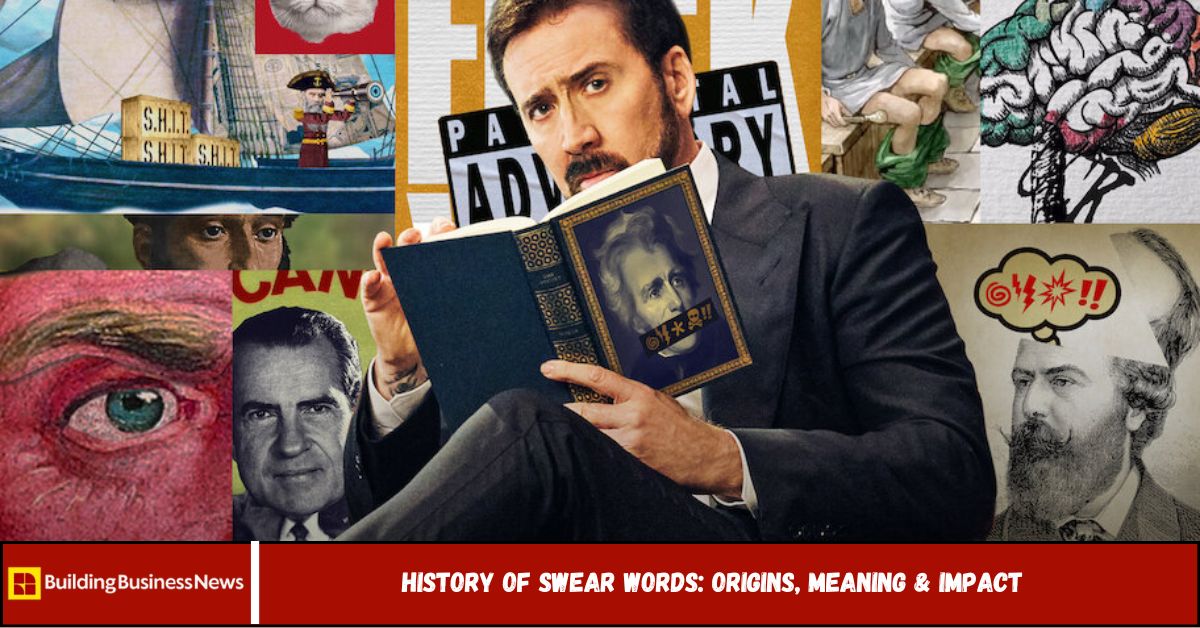Swear words have existed for centuries, evolving across cultures and languages. This article explores the origins of profanity, its social functions, and its psychological and cultural impact today. From medieval blasphemy to modern slang, you’ll learn why swear words still carry emotional weight—and why that might never change.
Swear words may feel like a modern rebellion, but their roots run deep—tracing back to ancient civilizations and evolving through centuries of taboo and expression.
While profanity often carries a reputation for rudeness, recent research reveals that swearing serves a surprising number of psychological and physiological functions. Studies suggest that using strong language can increase pain tolerance, help regulate emotional stress, and even reflect verbal intelligence and honesty.
So how did we get from sacred curses in medieval Europe to the colorful vocabulary we know today? This article explores the unexpected origins and evolution of swear words—from Ancient Rome to the Renaissance and into the modern digital age. Along the way, we’ll uncover what profanity reveals about shifting cultural boundaries, linguistic creativity, and the future of taboo language.
Introduction: Why Do Certain Words Still Shock Us?
Language is powerful—but few words evoke as much emotional reaction as swear words. Why are we so drawn to saying them, and why do they continue to provoke outrage, laughter, or discomfort?
Swearing is a universal part of human communication, yet it’s also one of the most censored. We use profanity to express anger, pain, humor, and frustration. But where did these words actually come from—and why are they considered “bad” in the first place?
This article dives into the history of swear words, uncovering their ancient origins, cultural evolution, and lasting psychological impact. You’ll discover how profanity functions in society and why, despite efforts to control it, it continues to thrive.
1. What Counts as a Swear Word?
Swear words—also called profanity, curse words, or obscenities—are typically defined as offensive or taboo terms related to:
- Sex or sexual anatomy
- Bodily functions
- Religion or blasphemy
- Insults and derogatory names
While definitions vary by culture and context, the common thread is social prohibition—these are words you’re “not supposed to say.”
2. Ancient Origins: Profanity in Early Civilizations
Swearing is as old as language itself. Ancient texts show that:
- Greek and Roman literature used profane or obscene language in comedies, political satire, and religious critiques.
- Medieval European societies focused heavily on religious oaths and blasphemy. Curses like “By God’s bones!” were deeply offensive.
- In many ancient cultures, swear words were tied to sacred or forbidden topics, making them powerful linguistic tools.
The evolution of profanity reflects what each society considers sacred or shameful.
3. How Religion and Law Shaped Swearing
For centuries, religion influenced what was considered profane. In Christian Europe, swearing that invoked God’s name was seen as sinful. Laws soon followed:
- In 16th-century England, playwrights could be jailed for obscenity.
- The Comstock Laws in 19th-century America banned “obscene” materials from the mail.
- Today, regulators like the FCC (Federal Communications Commission) still monitor language on public broadcasts.
These efforts to police language highlight how swearing challenges social order and authority.
4. Profanity in Popular Culture
By the 20th century, profanity became a tool for artistic expression and rebellion. Today, swearing is common in:
- Music (especially hip-hop, punk, and rock)
- Film and television
- Stand-up comedy
- Social media and online content
Cursing has become a way to signal authenticity, challenge taboos, and connect with audiences emotionally. However, censorship debates continue, especially concerning children and public platforms.
5. The Psychology of Swearing
Why does swearing feel so satisfying? Research shows that:
- Swearing activates the amygdala, the brain’s emotional center.
- Studies confirm that cussing reduces pain—physically and emotionally.
- Swearing can increase pain tolerance and help people cope with stress.
- In social settings, it can promote bonding and humor—if used appropriately.
Swear words carry emotional intensity. That’s why a well-timed expletive can be more powerful than a calm explanation.
6. Modern Attitudes and the Future of Swearing
Today, profanity is more widely accepted than ever, but context still matters. Swearing in a boardroom meeting? Probably not. Among friends at a concert? Likely fine.
- Workplaces and schools may still penalize use of profanity.
- Social media algorithms often restrict or demonetize content with explicit language.
- However, public tolerance for swearing has increased, especially among younger generations.
As culture shifts, so does language. New swear words emerge, old ones fade, but the function of profanity remains—to shock, express, and connect.
Conclusion
The history of swear words is a story of language, power, and human emotion. From religious blasphemy to rebellious street slang, profanity reflects our values, fears, and frustrations. It breaks rules, tests boundaries, and reminds us that words carry more than meaning—they carry emotion and identity.
While some may argue for politeness, others defend swearing as raw, real expression. Either way, one thing is clear: swear words aren’t going anywhere.
FAQs
1. What was the first known swear word?
One of the oldest recorded swear words comes from ancient Mesopotamia, referencing bodily functions in a crude insult.
2. Why do people swear?
People swear to express strong emotions such as anger, pain, or surprise, and to emphasize points or connect socially.
3. Is swearing harmful or helpful?
In moderation, swearing can relieve pain, reduce stress, and even enhance communication. Excessive use, however, may be socially damaging.
4. Are swear words universal across languages?
No. Every language has its own set of profanities, often tied to that culture’s taboos or religious beliefs.
5. Can children be negatively affected by swearing?
Repeated exposure can normalize offensive language, but context and parental guidance play a major role in shaping understanding.
6. Why are swear words offensive?
They often touch on cultural taboos—topics society finds uncomfortable, such as sex, death, or religion—giving them shock value.

